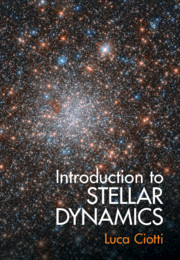3 - Tidal Fields
from Part I - Potential Theory
Published online by Cambridge University Press: 28 May 2021
Summary
In astronomy in general, and in the study of stellar systems in particular, one is often led to consider the effects of an “external” gravitational field on a body of some spatial extension: examples are satellites around planets, binary stars, open and globular clusters in galaxies, and galaxies in clusters of galaxies. The general problem can be mathematically very difficult; however, when the extension of the body of interest is small compared to the characteristic length scale of the external gravitational field (i.e., when the system is in the tidal regime), the problem becomes more tractable. In this chapter, we provide the basic ideas and tools that can be used in stellar dynamics when dealing with tidal fields. Among other things, we will find that tidal fields are not always expansive (as in the familiar case of the Earth–Moon system), as they can be also compressive (e.g., for stellar systems inside galaxies or for galaxies in galaxy clusters).
Keywords
Information
- Type
- Chapter
- Information
- Introduction to Stellar Dynamics , pp. 49 - 69Publisher: Cambridge University PressPrint publication year: 2021
